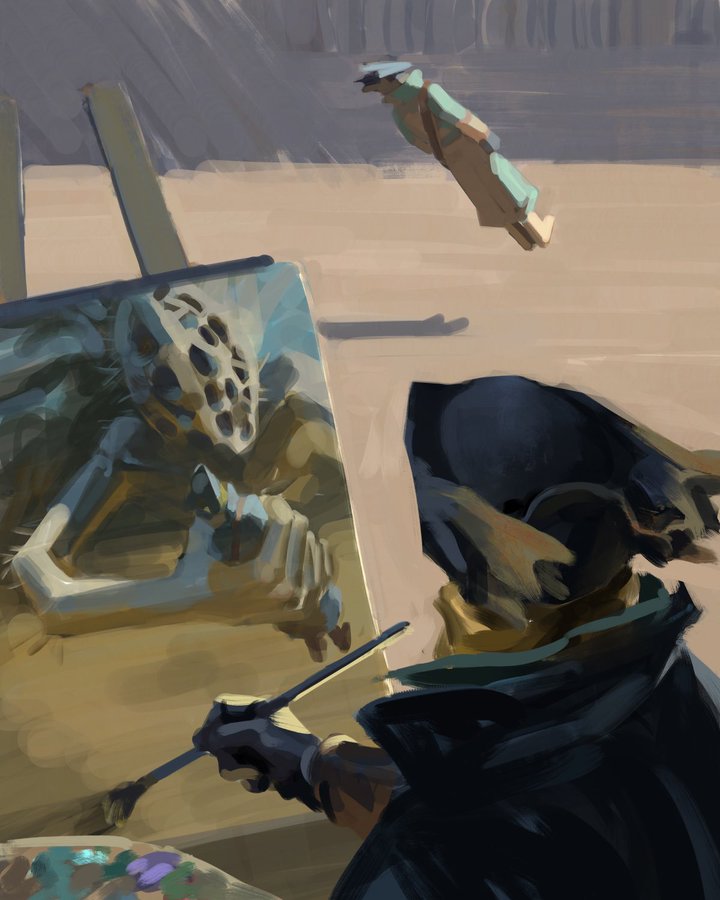- 71 Posts
- 148 Comments

 13·5 days ago
13·5 days agoThese days, probably not so much, but there was a time where console exclusives were a pretty big selling point. Halo CE sold a ton of Xboxes.

 71·12 days ago
71·12 days agoJesus fucking CHRIST
It’s honestly incredible that Bing even still exists, much less is still being actively being pushed by M$
In that case, I’m still not sure what the Intellivision brand even has left that Atari would want… I guess they could do one of those nostalgia re-release collections of old Intellivision games, but I feel like the nostalgia market for a nearly 50-year-old console mostly known for being a failed competitor to the 2600 is… very niche.
Huh, first I’m hearing of this Amico thing. I don’t know if it really has the support to capture enough of the market it seems to be going for… It looks like it’s trying to go for the “family-friendly, easy-to-use” concept that the Wii had, but the Wii had Nintendo behind it, along with other major publishers making games for it. The games included also look rather… basic.
…Annnnd it’s also a Tommy Tallarico thing. Of course it is. Why on earth does Atari want this?

 10·1 month ago
10·1 month agoIt seems to happen to me a lot that when I hear about something that greatly interests me as soon as it’s announced, the actual release of that thing seems to vanish.
The MtG show, Elder Scrolls 6, the KOTOR remake… Maybe I’m imagining things, but it seems like if it’s a property that I both greatly care about and hear about as soon as it’s announced, it feels like there’s a high likelihood that the project will just vanish for years in production hell.

 4·1 month ago
4·1 month agoPersonally I think the first transfer via the portal should be free, but any subsequent transfers should cost a year of eligibility, like the old system. They’d still have the ability to move around if needed, but it’d give some actual consequence to hopping around from school to school on a whim.
Is there an indication in this post of what game they’re even talking about?

 5·2 months ago
5·2 months agoPersonally, I prefer release order, especially for first-time watchers, but whatever you do, don’t start with TPM. The prequels are a terrible introduction to Star Wars, and if they’re watched before the viewer has an emotional investment in the franchise, it can cause them to lose interest in continuing.
Almost entirely unrelated, but it’s interesting how enduring the “rebel scum” line has been, given that it was first said by some no-name imperial officer in the shield generator room on Endor, who was then promptly knocked into a pit when Han threw a box at him.
Edit: I looked up the original scene, and it seems I slightly misremembered the order of events, but the core of the point still stands

 19·2 months ago
19·2 months agoHey, that’s [object Object] to you!

 451·3 months ago
451·3 months agoI hate that the focus of AI/ML development has become so fixated on generative AI - images, video, sound, text, and whatnot. It’s kind of crazy to me that AI can generate output with the degree of accuracy that it does, but honestly, I think that generative AI is, in a sense, barking up the wrong tree in terms of where AI’s true strengths lie.
AI can actually turn out to be really good at certain kinds of problem-solving, particularly when it comes to optimization problems. AI essentially “learns” by extremely rapid and complex trial-and-error, so when presented with a problem with many complex, interdependent variables in which an optimal solution needs to be found, a properly-trained AI model can achieve remarkably effective solutions far quicker than any human could, and could consider avenues of success that humans otherwise would miss. This is particularly applicable to a lot of engineering problems.
Honestly, I’d be very intrigued to see an AI model trained on average traffic data for a section of a city’s street grid, taken by observations from a series of cameras set up to observe various traffic patterns over the course of a few months, taking measurements on average number of cars passing through across various times of day, their average speed, and other such patterns, and then set on the task of optimizing stoplight timings to maximize traffic flow and minimize the amount of time cars spend waiting at red lights. If the model is set up carefully enough (including a data-collection plan that’s meticulous enough to properly model average traffic patterns, outlier disincentives to keep cars at little-used cross streets from having to wait 10 minutes for a green light, etc.), I feel that this sort of thing would be the perfect kind of problem for an AI model to solve.
AI should be used on complex, data-intensive problems that humans can’t solve on their own, or at least not without a huge amount of time and effort. Generative AI doesn’t actually solve any new problems. Why should we care if an AI can generate an image of an interracial couple or not? There are countless human artists who would happily take a commission to draw an interracial couple (or whatever else your heart desires) for you, without dealing with investing billions of dollars into developing increasingly complex models built on dubiously-sourced (at best) datasets that still don’t produce results as good as the real thing. Humans are already good at unscripted creativity, and computers are already good at massive volumes of complex calculations, so why force a square peg into a round hole?
Good to see they’re branching out with their business model. Can’t just commit to a single strategy these days. Sometimes it helps to rebase your priorities to avoid creating new issues.
Ok, bad jokes aside, how did it taste?

 101·3 months ago
101·3 months agoI don’t think online resources are necessarily a replacement for in-person classroom instruction, and even if they were, it’s not a reason to take the option of home ec classes away from those who want it.
That said, I think it’s at least a good thing that so many good internet resources on cooking exist, and it helps mitigate the problem to some degree. Still, it takes time and energy to seek out those resources, learn from them, and put them into practice. Not easy to do for anyone who has been worked far past the point of burnout and are still just scraping by.

 120·3 months ago
120·3 months ago'90s-'00s McDonald’s primarily appealed to kids, as the colorful characters and Happy Meals were a big part of the draw.
'10s-'20s McDonalds has pivoted to marketing towards adults, in part because they had come under fire for marketing greasy, oversalted calorie bombs to children as the US obesity epidemic took off. The other reason is that mid-to-low income adults became a much more lucrative demographic after decades of wage stagnation basically created an entire generation that’s too tired and overworked to cook for themselves but too poor to go out to eat anywhere else.

 2·3 months ago
2·3 months agoThe rap group Run-DMC

 6·3 months ago
6·3 months agoSports betting shouldn’t be banned, but it definitely needs a lot more regulation than it has, especially when it comes to advertising. Think along the lines of tobacco industry regulations.
The current state of sports betting involves incredibly predatory marketing practices that are intentionally cultivating addictions, and literally profiting off of others’ misery. Vice bans never work, but when gambling interests have overrun sports so heavily that it’s becoming more important than the sport itself, something’s gotta give.
Absolutely bizarre that they won’t just come out and say it’s EU5.




















Good point, I’ll have to keep that in mind. I would think that after the initial temperature equalization, it shouldn’t be an issue as long as the temp remains relatively stable afterward, so in theory, if the rate of the initial equalization is gradual enough, I would think it wouldn’t cause any long-term issues.
Though that does depend on how exactly any possible solutions would work, and how controlled they could be. I might just re-evaluate after I get the insulation work done.